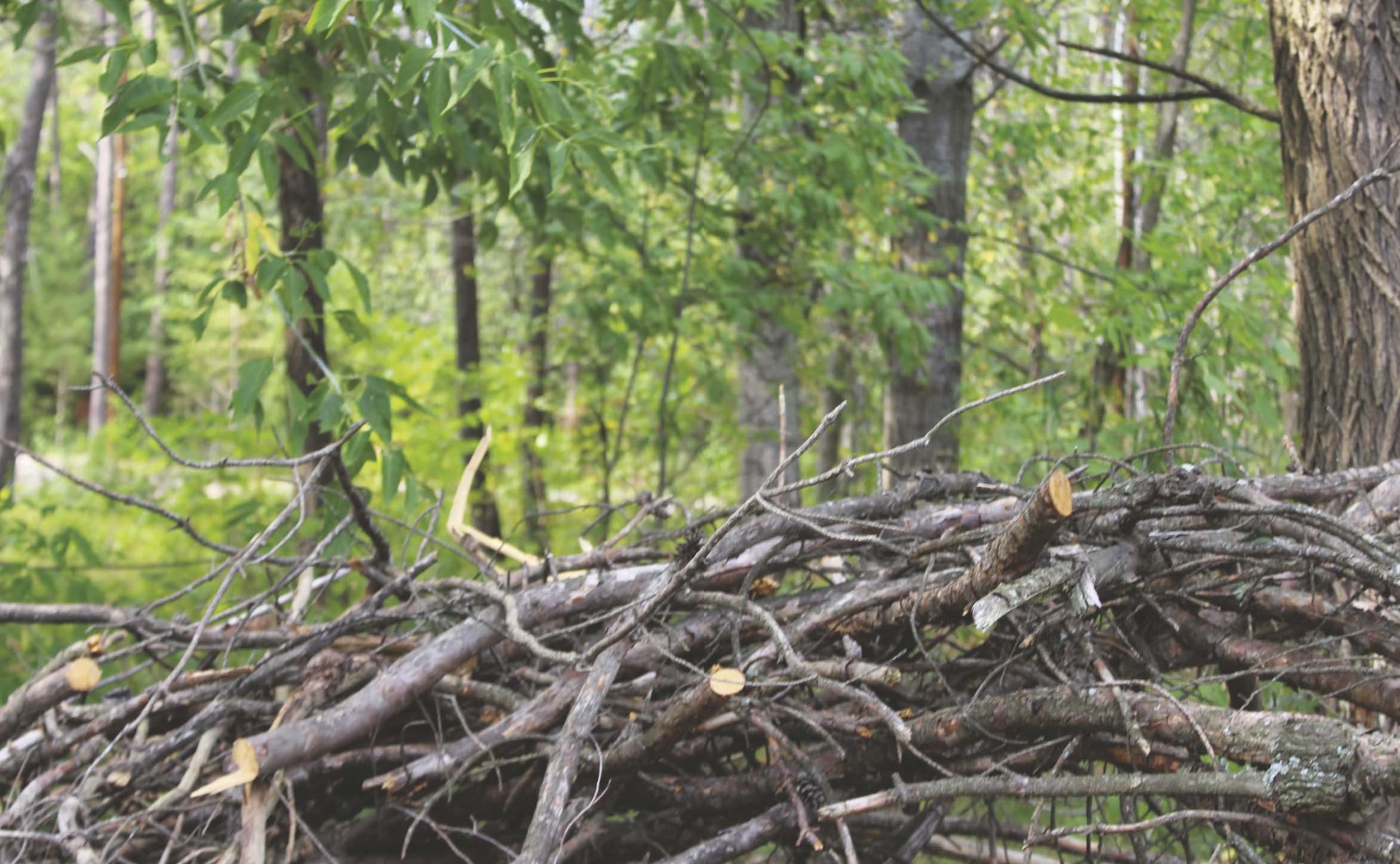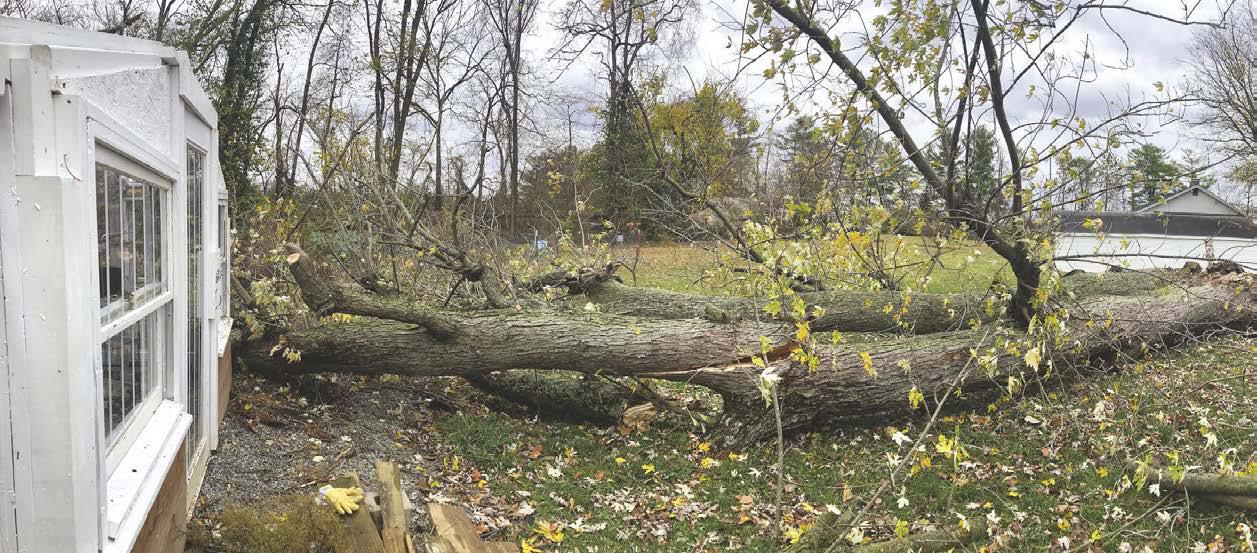Intentar ORO - Gratis
LIMBER TIMBER
Hobby Farms
|September - October 2023
You won't have to lumber over that brush pile with these tips.

All it takes is one good storm - or just one very windy day- to send tree branches earthward. Those fallen sticks and large limbs can really add up. That goes for any woody shrub trimmings you happen to generate while pruning as well. Before long, you can be left with a truly massive brush pile. Although lots of people choose to burn their brush, you can extract a lot of value from that old pile of sticks. Here are six ways to put your brush pile to better use.
BIOCHAR BASICS
As a soil amendment, biochar can improve soil structure, moisture retention capabilities and overall nutrient availability to plants. And, as it happens, dried limbs and branches — especially those from softwoods — make great feedstock for making biochar.
Whether you dig your own burn pit or use a biochar kiln, any limbs from your brush pile that you intend to include for this specialized burning process (pyrolysis) had better be aged and bone-dry. Ideally, they should be about 3 inches in diameter or smaller, and they should break easily with a loud crack when you bend-test them.
Because it can take up to 100 pounds of brush to make just 10 to 20 pounds of biochar, your best bet is to save up limbs and sticks over several months’ time, sorting them by size as you go. Gardening with Biochar author Jeff Cox recommends making a couple of piles — one for branches between two and three inches in diameter and another for sticks less than two inches around. Cover these piles with tarps to keep the rain out as you wait for the sorted wood to reach levels of 10% moisture or less. At that point, they’ll be ready for their transformation from plain-old yard waste to pyrolyzed prize.

Esta historia es de la edición September - October 2023 de Hobby Farms.
Suscríbete a Magzter GOLD para acceder a miles de historias premium seleccionadas y a más de 9000 revistas y periódicos.
¿Ya eres suscriptor? Iniciar sesión
MÁS HISTORIAS DE Hobby Farms

Hobby Farms
AN HERB TO AVOID IN WINTER
While many culinary herbs are beneficial in winter, some members of the mint family are best to avoid when temperatures dip below 40 degrees Fahrenheit.
1 min
Healthy Hens 2026

Hobby Farms
Golden Girls
Discover some of the most overlooked health issues in aging hens.
6 mins
Healthy Hens 2026
Hobby Farms
Winter Tea Supplement
Several years ago, I noticed that while my healthy hens were robust during the growing season, their health declined a little during winter when they weren’t regularly consuming herbs or other greens.
2 mins
Healthy Hens 2026

Hobby Farms
Cool CHOOKS
Most chicken breeds are pretty hardy, but you can still make them more comfortable by offering them some escape from the summer heat.
7 mins
Healthy Hens 2026

Hobby Farms
Feeding Fowl
What you feed, how you supplement and when you treat will make all the difference for your chickens.
10 mins
Healthy Hens 2026

Hobby Farms
Egg-Eating Hens
Egg-eating hens can be a frustrating and costly problem for backyard chicken-keepers.
6 mins
Healthy Hens 2026

Hobby Farms
Potent PREDATORS
Take precautions, as these 15 marauders can wipe out an entire flock.
12 mins
Healthy Hens 2026

Hobby Farms
15 TOXIC PLANTS
Don't let your chickens eat these common plants.
6 mins
Healthy Hens 2026

Hobby Farms
BUG Off!
Bugs, who needs 'em? Certainly not chicken-keepers, who sometimes struggle to keep pesky flies and poultry parasites at bay.
7 mins
Healthy Hens 2026

Hobby Farms
ALPHA Hens
With or without a flock rooster, one lady always steps up to be the queen.
7 mins
Healthy Hens 2026
Translate
Change font size
